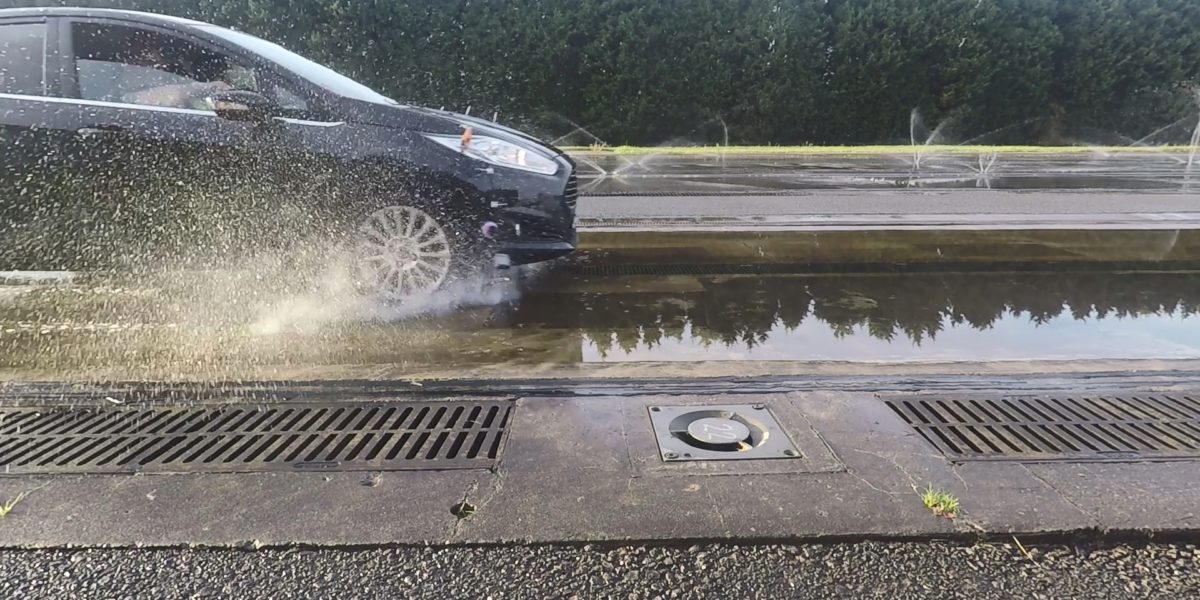New aquaplaning prevention device developed
Coventry University researchers bid to save lives with new device designed to prevent loss of control in heavy rain
Coventry University researchers have developed new hardware to prevent vehicles from aquaplaning and losing traction control due to adverse road conditions.
The Run Dry Traction System (RDTS) is the product of Coventry University’s Research Centre for Future Transport and Cities. It is headed up by Professor Mike Blundell and Ravi Ranjan.
Getting a grip
The prototype product prevents aquaplaning and loss of traction in a variety of road conditions. Aquaplaning/hydroplaning happens when a layer of surface water builds up between a vehicle’s tyres and the road surface. This leads to a complete loss of grip. This can occur with as little as 2-3mm of standing water on the road surface, and when vehicles are travelling at any variety of speeds.
The RDTS presents a novel potential solution to the problem. It works by firing a jet of compressed gas close to the front of the wheel, removing surface water in front of the tyre. This ensures that the vehicle has a dry patch of road ahead, ensuring the grip is not compromised by road contaminants such as water, sand and gravel.
Keeping control, saving lives
Professor Mike Blundell is Professor of Vehicle Dynamics and Impact at Coventry University.
“Our tests demonstrate that RDTS has the potential to make a huge impact on vehicle safety in a whole host of conditions. The prospect of producing something that could even save lives on the road is extremely exciting”.
The centre is now looking into the manufacturing potential, with further research to commercially develop the system.
“A device like this really could be the difference between life and death”.
Planes, trains and automobiles
The RDTS is designed to fit a wide range of vehicles. This includes cars, buses, trucks and motorcycles. Further development could see it used to improve aircraft ground operations and rail transport safety.
Click here to find out more about Run Dry Traction System (RDTS) and Coventry University’s Knowledge Exchange activities.





